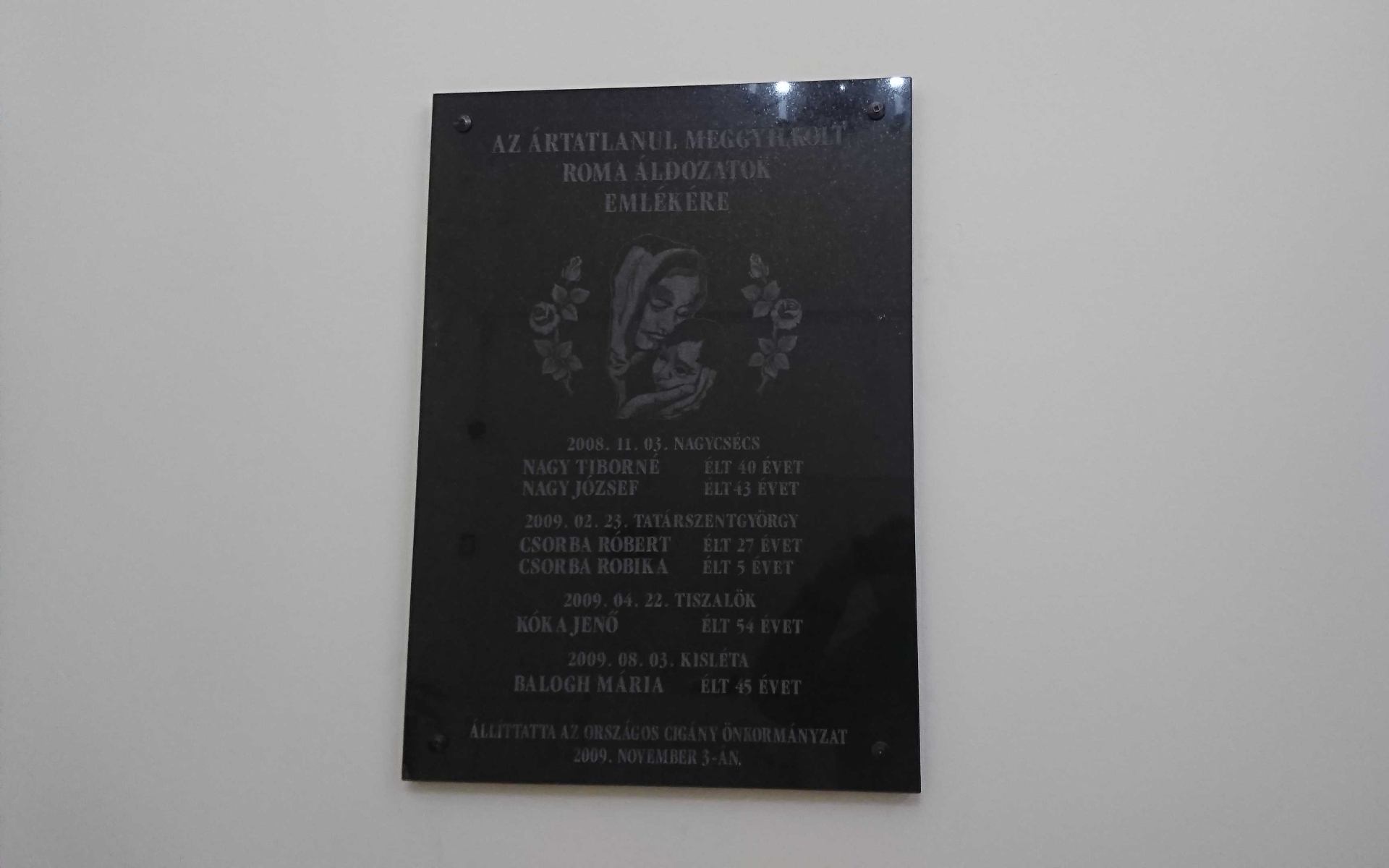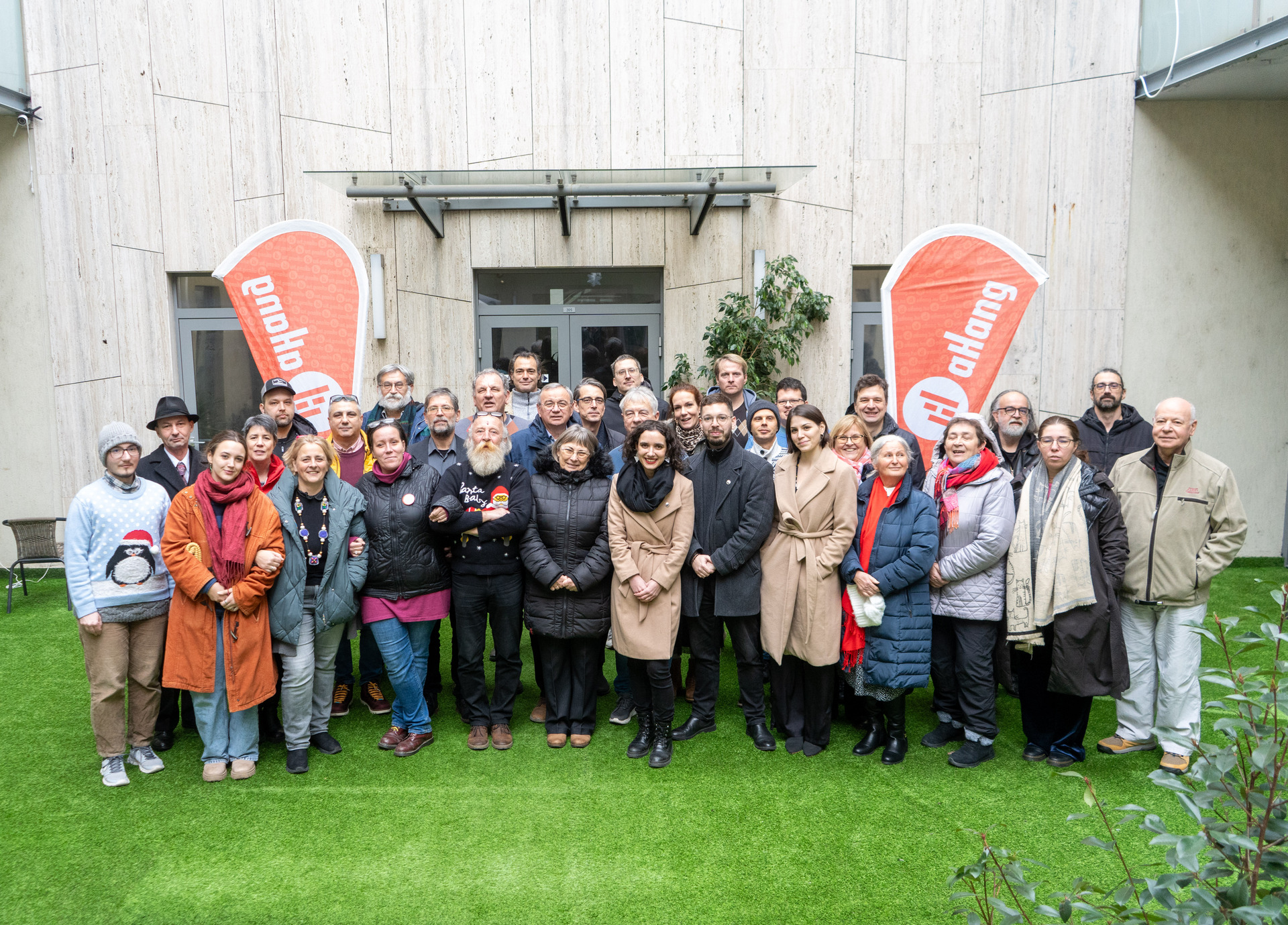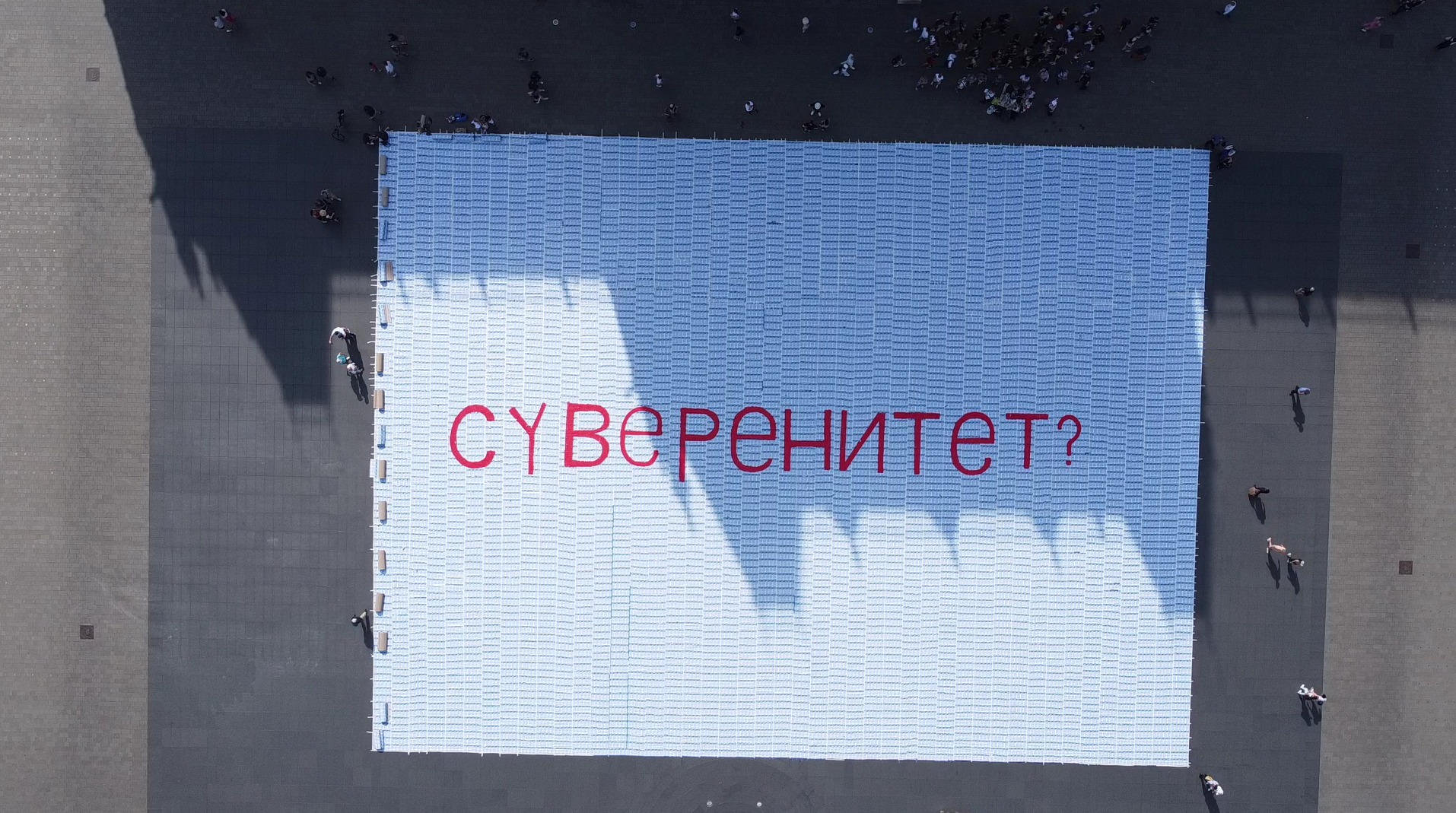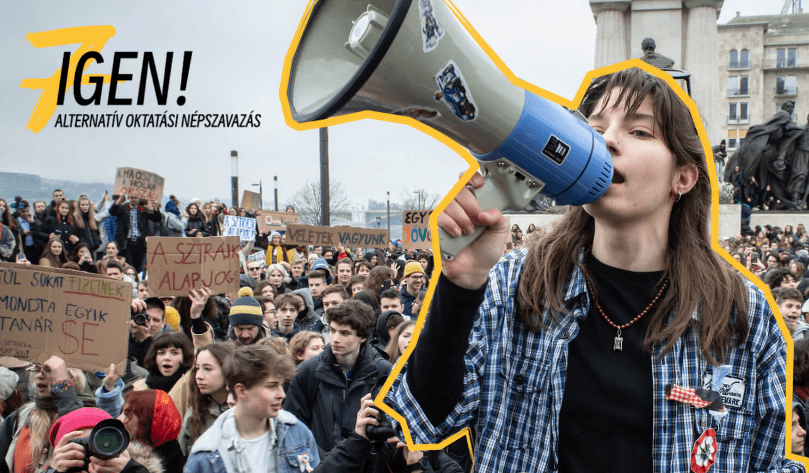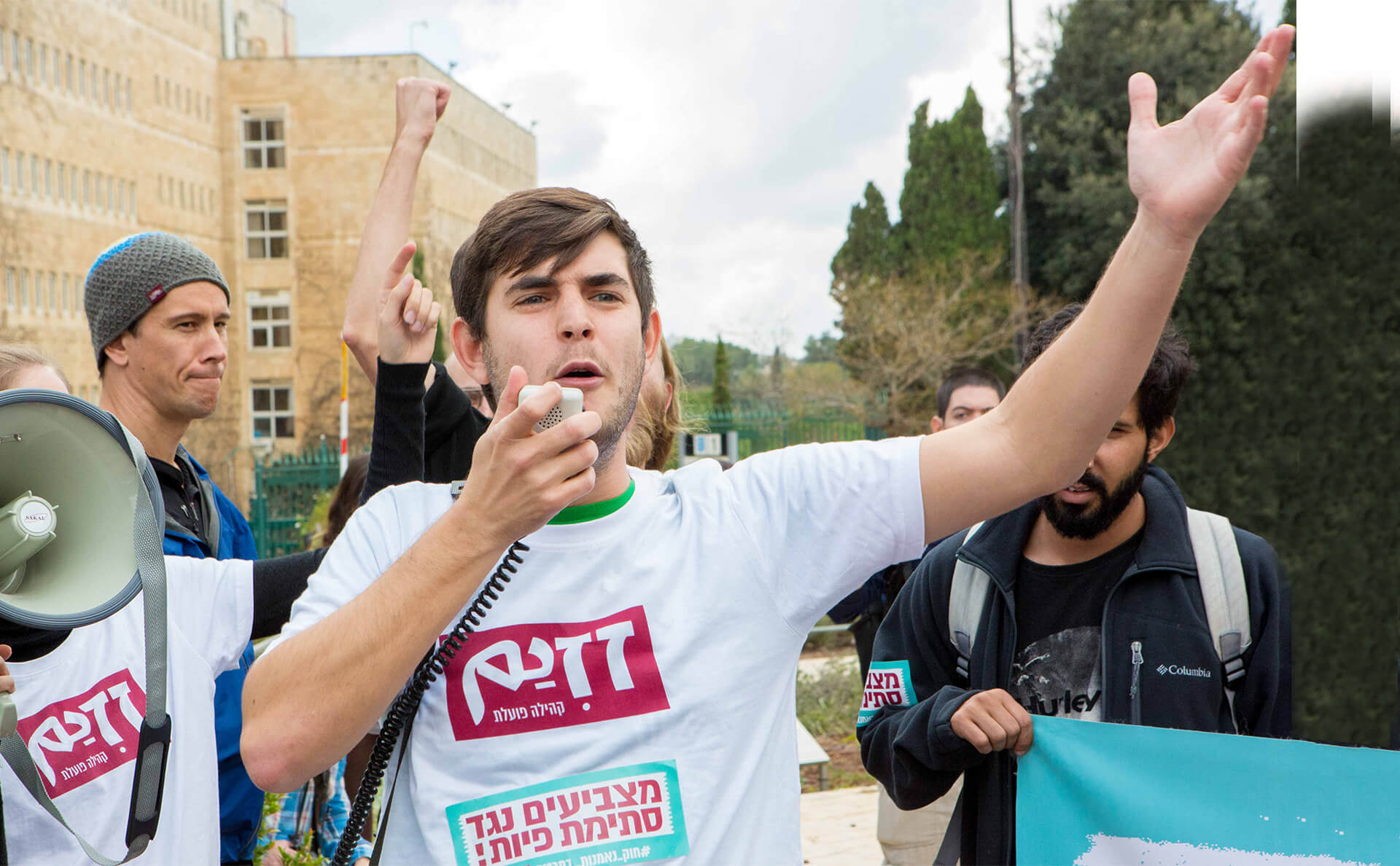aHang’s activists, together with the citizens who joined them, have achieved a tremendous result: due to their exerting pressure, the National Roma Self-Government has reinstalled the memorial plaque commemorating the victims of a series of homicides against the Roma. This is another huge achievement made possible by the aHang platform, and this time success came in relation to a particularly neglected area in Hungary: the field of Roma advocacy.
Ten years ago, in November 2009, the National Roma Self-Government led by Orbán Kolompár placed a memorial plaque in its headquarters in Dohány Street. The black marble board commemorated the six victims of a series of homicides against the Roma. Then, the plaque disappeared from the wall of the building. Over the years, an increasing number of people noticed that it was missing and inquired about its whereabouts and the reason for its removal, but no one got an explanation. A couple of months ago, one of the staff members of aHang inquired about the plaque at the headquarters in person, and he was promised an answer by the secretariat, but it never arrived.
There is very little information available on the former plaque, with an article by Attila Balogh Hidvéghi, editor-in-chief of Romnet, being the only authentic source. Apart from that, no image or other relevant links can be found on the Internet. Still, it is certain that the inauguration of the plaque has happened and that it was on the wall for some time.
http://www.romnet.hu/hirek/2009/11/03/emlektabla_orzi_a_romagyilkossagok_aldozatait
As the jubilee was approaching, the situation around the unanswered question became increasingly grave, so Lajos ‘Paci’ Balogh, staff member of aHang, launched a campaign on the issue involving collecting signatures, mass mailing and a street action.
https://terjed.ahang.hu/campaigns/emlektabla
In two weeks’ time nearly 1,000 people joined the campaign, with 25 of them wanting to make the Roma self-government accountable in person last Friday. However, office staff refused – as far as we know by superior order – to open the door for them or pick up the phone, even though it would have been their duty during office hours.
After several unsuccessful attempts, some activists started banging on the door, and Lajos ‘Paci’ Balogh said the following in an improvised speech: an organization which operates from taxpayers’ – including Roma taxpayers’ – money and is supposed to represent the interests of the Roma, turns its back on the Roma who have travelled hundreds of kilometers to enter their own self-government.
‘We thought they would be expecting us with coffee, as Roma people should expect other Roma people who have travelled from far away, but we couldn’t even enter,’ said bitterly an activist coming from Nyíregyháza.
Of the 47 paid representatives, only one spoke to the activists on the phone, but even that person failed to arrange for the protesters to be allowed in – or at least be talked to over the phone or the door entry phone – by the office director.
According to the information we have received, there was a great deal of urgency and action inside: the staff members of the self-government were talking to Fidesz decision-makers and Lungo Drom people about what to do.
Amidst the great secrecy, the door was not even opened to the postman, so on February 8, 2019, no letters, including official correspondence, arrived in the office of the self-government.
The activists finally covered the door of the self-government with their messages, and after trying in vain for an hour, left the scene.
The ‘door banging’ and the speech of Lajos ‘Paci’ Balogh:
Two of our colleagues visited the office on Dohány Street yesterday, and having waited there for an hour, left the headquarters of the self-government without receiving an answer. Today, however, they were received by the sight of the plaque having been stealthily reinstalled on the wall.
So we were able to have the plaque reinstalled for the coming jubilee of the series of homicides against the Roma, but it has taken exerting pressure by citizens. However, it is still unknown why the National Roma Self-Government had the plaque commemorating the victims of the racist homicides removed from the wall of its headquarters.
This morning, when we were still unaware that the plaque had been reinstalled, aHang started collecting donations for a new plaque.
https://terjed.ahang.hu/campaigns/emlektabla
We want the new plaque made from the donations to be installed at a location where the victims can be commemorated in a worthy way. To achieve this, we are starting a dialogue involving as many stakeholders, Roma and non-Roma interest groups and activists as possible.



